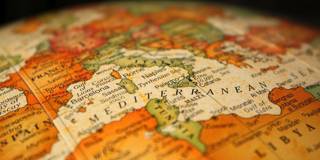When it comes to ties between the European Union and Africa, returning to “normal” after the COVID-19 crisis is simply not an option. The relationship must be rethought and reshaped – beginning at the upcoming mini-summit of EU and African Union leaders.
CAPE TOWN – This was supposed to be the year Europe and Africa redefined their relationship. In March, the European Commission unveiled its vision for a “comprehensive strategy with Africa,” intended to kick-start a six-month consultation process, which would culminate at the European Union-African Union summit in October in an agreement on a new blueprint for relations – one that would give Africa significantly more agency. Then COVID-19 arrived.

CAPE TOWN – This was supposed to be the year Europe and Africa redefined their relationship. In March, the European Commission unveiled its vision for a “comprehensive strategy with Africa,” intended to kick-start a six-month consultation process, which would culminate at the European Union-African Union summit in October in an agreement on a new blueprint for relations – one that would give Africa significantly more agency. Then COVID-19 arrived.